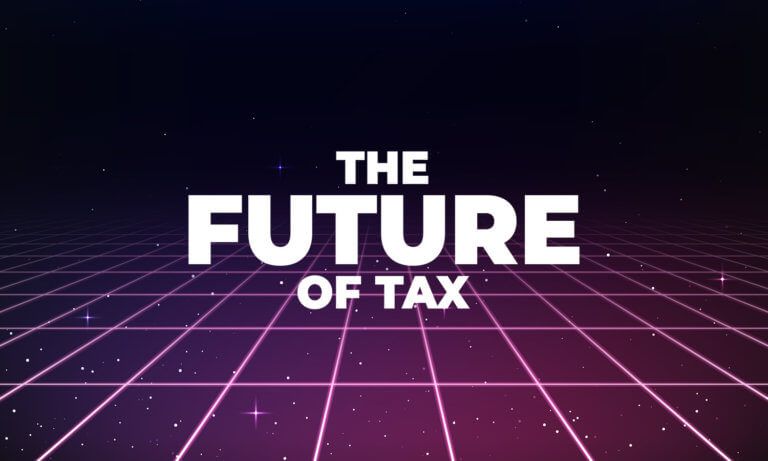Blog

Sovos’ Global Compliance Summit – Intelligent Reporting “Speaker Spotlight” Series continues with an introduction to another brilliant tax expert who is particularly knowledgeable in the cryptocurrency industry. In this segment, we welcome Roger Brown of Lukka, who will be presenting at our upcoming conference in early October. Roger will highlight the anticipated OECD developments involving […]

Sovos’ Global Compliance Summit – Intelligent Reporting “Speaker Spotlight” Series continues with the introduction to an award-winning subject matter expert on tax in the Cryptocurrency industry. In this segment, we welcome Sheehan Chandrasekera of Cointracker, who will be attending & presenting at our upcoming conference in early October. In this segment of the “Speaker Spotlight” […]

Sovos’ Global Compliance Summit – Intelligent Reporting “Speaker Spotlight” Series kicks off with the introduction to two brilliant women in the world of tax, Kelli Wooten of KPMG LLP and Susie Jensen of Zions Bancorporation, who will be attending & presenting at our upcoming conference in early October. These two professionals are particularly well-versed in […]

The IRS has released the 2020 version of Publication 1220. One of the most notable changes is that Form 1099-NEC (Nonemployee Compensation)—which was previously reported on Form 1099-MISC utilizing Box 7—will not be a Combined Federal/State Filing (CFS) form. This means that Form 1099-NEC cannot be filed with the states through the CFS Program. The […]

The 2020 tax information reporting season is rapidly approaching and the changes we know about so far are pretty complex. A primary example lies in the new Form 1099-NEC which was reintroduced by the IRS last fall and is required to be used for reporting 2020 nonemployee compensation payments (formerly reported in Box 7 of […]

Last week, the IRS released an updated draft of the Form 1040 to be used by individual taxpayers when reporting income taxes for the 2020 calendar year. The new version contains the question about whether a taxpayer held an interest in virtual currency assets on the front page of the form. Crypto investors and the […]

On July 17th, the IRS released Revenue Procedure 2020-35 which is the annual version of Publication 1179 General Rules and Specifications for Substitute Forms 1096, 1098, 1099, 5498, and Certain Other Information Returns. The annual publication contains IRS format requirements for issuing Forms 1099 and other information returns to recipients and for the versions that […]

Note: This post was updated on May 22, 2023. Though the U.S. workplace model has shifted quite a bit in the past few years, one of the few items that has stayed consistent is IRS compliance requirements associated with “B”(CP2100) and “P”(972CG) notices. As companies start implementing permanent workplace decisions whether that be in-office, hybrid […]

Last year, Sovos promised insurers we would Solve Tax for Good®. A year later, we have helped thousands of insurers ease the burden and risk of modern tax and regulatory compliance. We have kept our promise by helping insurers stay ahead of the Tax Cuts and Jobs Act, SECURE Act and all other tax and […]

Finding relevant insurance accounting education has always been a challenge for insurance professionals. Insurance is a global industry. But, the financial reporting and tax rules for insurance transactions represent only a small niche within the extensive realm of statutory and GAAP guidance. Captive insurance companies are yet another niche within that, which only narrows the […]

The Coronavirus pandemic revived a longstanding debate amongst lawmakers about what unemployment benefits to provide to independent contractors and how to decrease the underreporting of income. Chairman of the Senate Finance Committee’s Taxation and IRS Oversight Subcommittee, John Thune, believes simplifying tax requirements would ensure that self-employed workers report accurately, pay all taxes owed and […]

With the acquisition of Eagle Technology Management (ETM) and Booke Seminars, Sovos has united the very best in statutory reporting solutions, technology and expertise. Below is an overview of our strategy following these acquisitions: Sovos’s SaaS and Security Strategy Sovos at its core is a Software as a Service (SaaS) and cloud-first company. This means […]

In February, some of the largest U.S. insurers came together for a Sovos-sponsored virtual forum. The forum focused on how these insurers managed their reporting obligations for the new IRS Forms 1099-LS and 1099-SB. Below you will find important background information on Forms 1099-LS and SB and four tips for issuing Form 1099-SB gathered from […]

A trend is emerging across the country. In the last year, Illinois, Virginia, Florida and Maryland changed their reporting requirements for the 1099-K. Below are the new requirements, by state: Illinois: Beginning with tax year (TY) 2019, issuers of Form 1099-K will be required to submit those reports to Illinois electronically if required by the […]

The Coronavirus Aid, Relief and Economic Security (CARES) Act addresses the economic impacts of the COVID-19 outbreak. It authorizes emergency loans to distressed businesses, payouts of tax rebates to individuals and their children and provides paid family leave and paid sick leave benefits to employees by offsetting tax credits to employers. The bill provides for […]

Forms 1099-LS and 1099-SB were born out of the 2017 Tax Cuts and Jobs Act (TCJA) as part of the Life Settlement reporting section. They were first introduced for the 2019 tax season, and require reporting from both the purchaser and the life insurance carrier when a life insurance policy is sold to a new […]

Tax compliance has always been a balancing act – directing available energy and resources on those activities and solutions that will do the most to keep your company safe from audit risk. While the challenges may differ (as resources may be less available to some businesses during the COVID-19 pandemic) the obligation of tax professionals […]

This year’s sports cancellations, including the NBA and March Madness, have left many states with far fewer tax dollars than expected. Since it was legalized by the Supreme Court in 2018, sports betting has been legalized by state governments across the country. Last year, nine states legalized sports betting. This brings the total number of […]